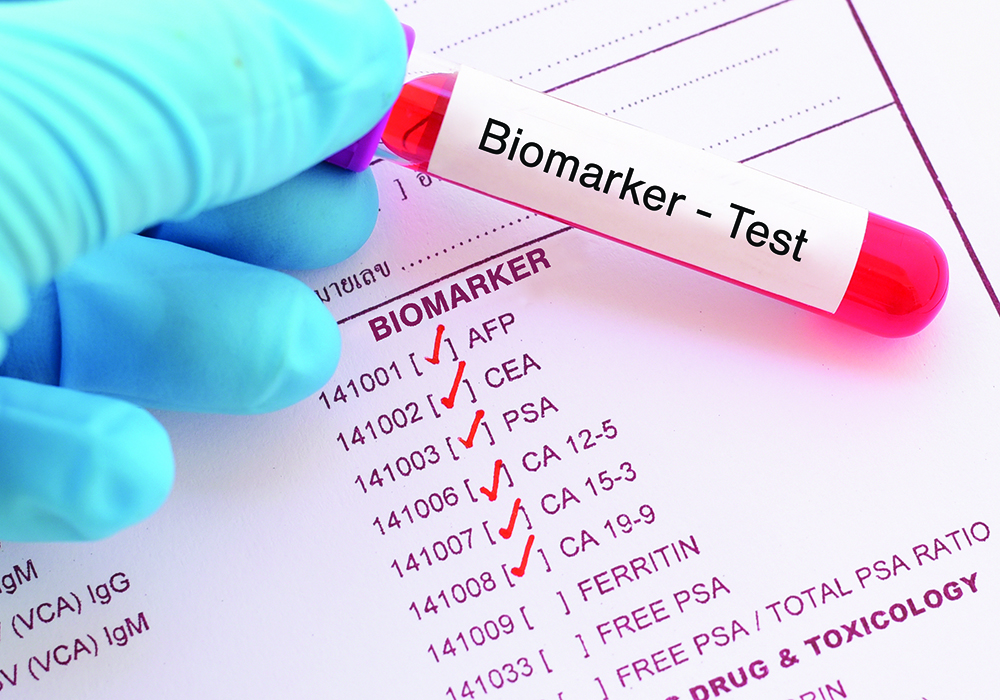By Caressa Valdueza, MSN, AGNP-BC, AOCNP®
As oncology biomarker testing becomes a routine part of clinical practice, so does first-line use of their associated targeted therapies such as monoclonal antibodies, checkpoint inhibitors, and tyrosine kinase inhibitors.
The practice changes affect nurses at all levels, and some of the roles oncology nurses may now find themselves in include:
- Providing patient education about biomarkers and how they influence clinical decisions
- Collecting specimens for biomarker testing
- In advanced practice, obtaining informed consent for biomarker testing and prescribing targeted therapies based on identified germline and somatic variants
Biomarker Decision Support Tool
ONS’s new Biomarker Database, a clinical decision support tool, is a new resource to help oncology nurses understand patients’ treatment eligibility, risk, and prognosis and guide patient education. The database includes both germline and somatic biomarkers, their purpose in clinical practice (e.g., predictive, susceptibility, prognostic), and their associated cancer types, targeted therapies, testing modality, implications for patient care, and additional considerations.
How to Use the Database in Clinical Practice
Clinicians can apply the tool throughout their daily cancer care and patient interactions, including:
- Implications for patient care: Use the database to understand treatment rationale, disease risk, and anticipated adverse events based on a patient’s detected biomarkers. For example, a HER2 protein amplification in unresectable breast cancer renders patients eligible for trastuzumab, and the pathogenic germline CDH1 variant heightens patients’ risk for breast and gastric cancer.
- Targeted therapies for specific biomarkers across cancer types: For example, BRAF inhibitors’ approval for melanoma later led to the use of encorafenib or metastatic colon cancers and dabrafenib plus trametinib for all metastatic/unresectable solid tumors that harbor the BRAFV600E variant.
- Treatment contraindications: In colon cancer, EGFR inhibitors such as cetuximab and panitumumab are contraindicated for patients with colon cancers that exhibit altered BRAF.
- Patient education: The database can help nurses review treatment rationale with patients and support advanced practice nurses as they obtain consent for biomarker testing and explain how the results will influence patients’ treatment plans.
- Screening for clinical trials: Use the database to identify clinical trials associated with a biomarker and to collaborate with research nurses for patient enrollment.
- Education and communication with the cancer care team: A comprehensive understanding of biomarkers and their terminology allows oncology nurses to lead communications across disciplines such as pathology, pharmacy, industry, and research.
Oncology nurses’ roles in biomarker translation are more vital than ever. New actionable biomarkers are quickly emerging and reshaping treatment guidelines. As cancer treatment evolves, oncology nurses must remain current in applying biomarkers to clinical practice.






